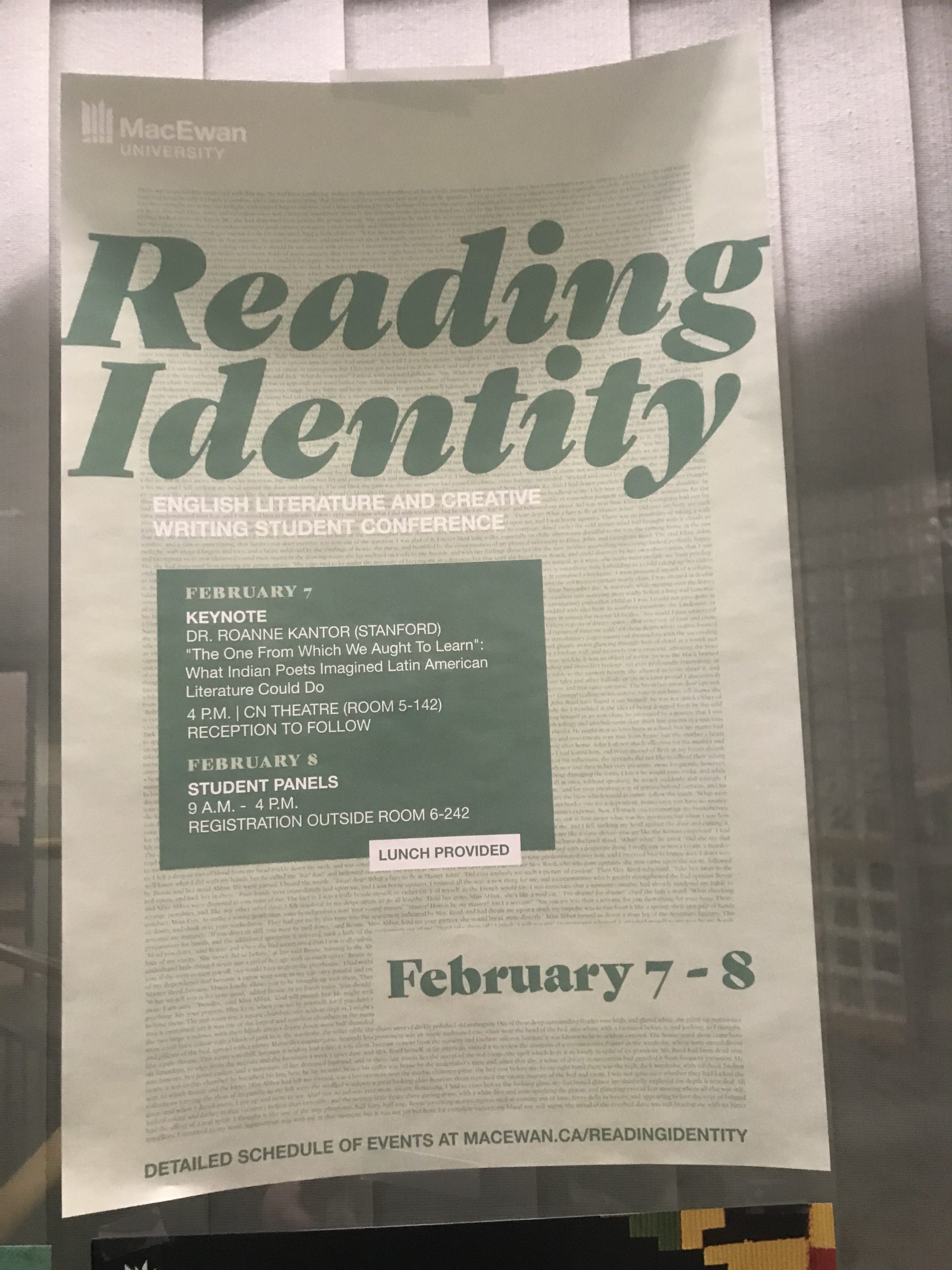MacEwan University hosted its annual Reading Identity conference on Feb. 7 and 8. The conference is an interactive series of panels and discussions where students display their works of creative and academic writing for fellow students, professors, and passionate consumers of English literature.
Reading Identity is a student-run event where students from all over Canada can come and present work they have done analyzing and creating pieces of literature. This year marks the event’s 11th conference. The event strives to create an intimate, informal, and collegial environment for students to present their work and receive constructive advice from professors with backgrounds in English, the humanities, and the arts. People attending the event partook in conversation with the students about their work and why they believed it was significant.
Among the presenters this year was Dr. Roanne Kantor of Stanford University. Kantor gave an interesting presentation on her work in comparative literature, as well as shedding light on the relatively unknown genre of storytelling, magical realism.
Kantor is an assistant professor of Global Anglophone literature. She earned her bachelor of arts from the University of California Los Angeles before making her masters and Ph.D. from the University of Texas, Austin, with a background in comparative literature. She’s taught at many American institutions, including Harvard University, Boston University, Brandeis University, and the University of Texas, Austin. She is also the winner of the Susan Sontag Prize for Translation for her work in translating Juan Jose Saer’s The One Before.
Kantor’s presentation titled, “’ The One From Which We Aught To Learn’: What Indian Poets Imagined Latin American Literature Could Do”, a topic that Dr. Kantor touched heavily on for her book project Countershelf: South Asian Authors, Latin American texts, and the Unexpected Journey to Global English. In her lecture, which took place Friday, Feb. 7, in the CN Theatre, Kantor examined a relatively unknown time in Indian writing as well as giving the audience an insight into magical realism.
Dr. Kantor sat down with the griff for an interview giving more explanation for what the genre is.
“Whenever we want a definition of this form, we also want to know to what end? Once we know whether we will categorize a text into this form, what does that categorization help us to do that tradition and with that text? Wendy Faris once said that the single fundamental distinction with magical realism is ‘it has an irreducible element of magic, but it also takes place in the phenomenal world in which we all inhabit, and it is the disjuncture between those two things which produces the particular emotional effect of magical realism,’” she explained.
Furthermore, Kantor commented on the importance of university events like Reading Identity. “I think it can be really transformative for undergraduates to understand and be reminded that their writing has an audience beyond their professor. One of the disadvantages of writing a term paper is that you imagine that I’m the only person who says something to you. There are certain kinds of formal sloppiness that come into our writing when we are writing for a small audience. When you go to a conference like this, and you present your work to a wide audience where you have people who don’t know anything about the topic or genre you are presenting about, you have a different level of responsibility over the text, and you get to be the authority in the room which feels really good.”
For more information about Dr. Kantor or her work, go to her Stanford profile at stanford.edu.





0 Comments